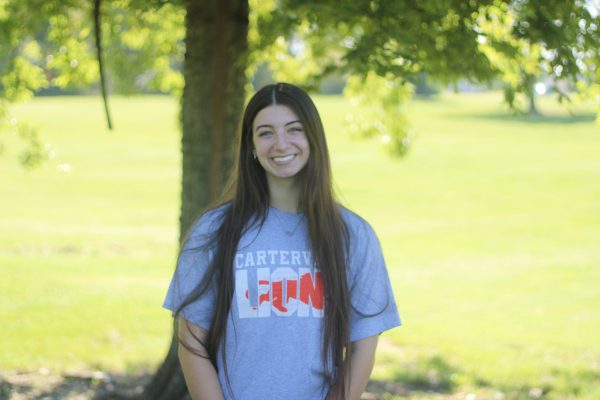Every athletic governing organization has gone under extreme scrutiny, but nothing compares to the opinions on the NCAA. The NCAA has been in a position of power for a multitude of years, but should their time in power come to an end?
The NCAA was founded in 1906 after President Theodore Roosevelt wanted colleges to clean up the game of football. After the 1905 season, coined “the Death Harvest” due to the death of 19 football players, 13 schools came together to change the playing rules in December of that year. Thus, the birth of the NCAA came upon us, the organization has ruled ever since.
Throughout the past few years, the NCAA has slipped up on regulating college sports, and it is time for a change. The organization has made its platform for putting the “student” in student-athlete; it claims to make sports an important part of an education system. However, this is not the case B. David Ridpath, an associate professor of sports business at Ohio University, makes as the case for breaking up the NCAA, saying, “…the organization has become an unwieldy bureaucracy with a one-size-fits-all approach to governance that doesn’t fit all schools, conferences or sports, and gives priority to money making over education.”
For many years the NCAA’s job of rule making and amending was done to the best of their abilities. It also deserves some praise for the additions of sporting events such as March Madness which has kept up with the popular vote. In recent years their most prominent rule additions/changes have been the Name, Image, Likeness (NIL) rules that went into effect a few summers ago. An NIL deal will allow student-athletes to be compensated for their name, image, and likeness. For example, Bronny James (oldest son of LeBron James) has signed notable agreements with Beats by Dre, Nike, and PSD Underwear. NIL deals have created a sort of battle between top sports programs to attract the leading performers. Colleges may not be able to pay their athletes, but they have the opportunity to push boosters and make brand deals to ensure NIL deals for players. Instead of just paying these young athletes for the value they bring the schools, the NCAA has dropped the ball on regulating the NIL rule, “instead of ensuring an even playing field, they have left it up to states and conferences to sort out how they want to do NIL.” The organization failed to put restrictions on it in the first place, changing the collegiate sports environment entirely.
Making matters worse, the transfer portal is completely out the window. The transfer rule forced athletes to sit out a year of play if they chose to change schools, making transferring a very serious decision and making athletes more committed to their program. Athletes do not want to sit out of their sport if they do not have to so considering transferring would ensure it was because that is what the athlete really wanted. Coaches did not like the transfer rule when it was first introduced because of the lack of control it gave them. It soon became seen as fair, as it allowed student-athletes who needed a better fit to find one, which now is the case for seemingly every other student. However, as of this past spring, the NCAA changed the transfer rule making collegiate athletes freelance from day one. The elimination of the transfer rule completely undermined the idea of a serious commitment an athlete was making to a program. It is impossible to build a program if the best athletes are always on the move.
On the other hand, there are some who say that the NCAA has some great aspects. An example would be the investigation system. A great example of this would be the University of Central Florida (UCF) case, which began with multiple media reports of NCAA rules being violated at UCF. The NCAA came in, investigated, and concluded that UCF had violated multiple rules. UCF also went through the appeals process and did get some charges appealed. The university went through the process, exercised its rights, and demonstrated that the system does work. That is not the only case of false blame on the NCAA, and also place blame on the NCAA for television time during the season. However, the NCAA is not to blame for this event since conferences work directly with networks. Others complain about all the college football day games but TV networks schedule games according to revenue.
The optimism of the NCAA’s innocence is to no avail. Former associate director of football for the NCAA, Aaron Hernandez, was tasked with identifying major threats to the collegiate model and conducting investigations of football programs that may have violated NCAA rules. Hernandez spoke about how the NCAA had become obsessed with policing amateurism and taking money from fairly harmless violations, while on the other end completely ignoring sexual assault allegations and showing zero leadership in preventing it. Hernandez had the opportunity to interview sexual assault survivors at Baylor and the experience changed him. The case, on the outside, seemed to be an easy one to Hernandez, however, it was far from. “Baylor and (head football coach Art) Briles need to pay. And then it was ultimately out of our hands because the [NCAA] Committee of Infractions makes the ultimate call. And now Briles can still coach college football.” said Hernandez.
Along with the failures that are the NCAA’s new rules, comes enforcement. The NCAA’s rule book exceeds 400 pages with inconsistent effort to enforce each and every rule which inspires little to no respect. There is a solution to the debacle of how to make sure all the rules are enforced across the board, which is a third party. Transferring authority to an outside organization would allow a more credible job of enforcing the NCAA’s rules than the NCAA itself.
With poor leadership, enforcement, and rule-making, the NCAA has fumbled the ball on its sports governance. The NCAA would be better off breaking up. A possible replacement could be each conference regulating its own colleges. Possibly keeping the NCAA as a sort of meeting place for all the conferences to follow the same rules. However, only having one organization regulate every college that falls under the realm of the NCAA is a long and tedious process. Allowing the conferences to manage their colleges will allow fewer things to slip through the cracks and would also inspire more respect for the rules and regulations. One small group regulating over 1,110 colleges allows so much room for disaster, as the NCAA has demonstrated.





